Extremist groups continue to ‘metastasize and recruit’ after Capitol riot: Study
Extremist groups are spreading and expanding across the United States a year after the January 6 insurrection, according to a report.
Following the attack on the Capitol, most far-right groups have reorganized, often with a focus on local-level politics and a developing eco-system of far-right social media, showed the research by the Atlantic Council’s Digital Forensic Research Lab.
They have also adapted their infrastructure, added the analysis which tracked violent domestic extremism and political violence since the riot via news reports and known extremist networks.
It found that domestic extremist groups have recruited and spread their messages through culture-war debates including vaccines, race and education.
The QAnon conspiracy movement and the Proud Boys to militia organizations as well as avowed white nationalists have re-emerged in recent months, frequently trying to bring change at the local level.
They have “made troubling progress by shifting to alternative online platforms, embracing rhetoric to engage more broadly with the mainstream conservative base and engaging in new political activities, particularly public health and education issues at the local level,” noted the research.
“The domestic extremist landscape was battered by Jan. 6,” said Jared Holt, a resident fellow at the Digital Forensic Research Lab and author of the new report. “But extremism is dynamic and fluid. It is always trying to adapt to fit the container that it’s in.”
Meanwhile, tech companies purged many extremists off their platforms, forcing them to disperse across the internet on to smaller, more obscure sites.
In a report, The Guardian explained how the adoption of smaller platforms and less sophisticated alt-tech made extremists vulnerable to data scrapes, breaches and hacks.
It links how some entrepreneurs have responded by creating alternative platforms, which were independent from current mainstream digital providers.
The report warns of the rise of far-right influencers inside these alternative social media platforms and the dangers that they could bring.
“These developments offer extremists sufficient conditions to continue metastasizing and recruiting. Though most online tools adopted by extremists enable them to reach smaller audiences than those possible on mainstream social media, they may be more effective in intensifying the radicalization of individuals already engaged with them.”
During the Jan. 6 riot, thousands of Donald Trump’s supporters attacked police, vandalized the Capitol and sent members of Congress and then-Vice President Mike Pence running for their lives on that day.
Democrats have been arguing that the riot was an insurrection based on disinformation spread by Trump, who alleges that he is the true victor of the 2020 presidential election and not Joe Biden.
US imposes ‘terrorist-grade sanctions’ on UN expert, ICC judges amid Gaza accountability drive
VIDEO | Press TV's news headlines
Senior Russian general shot and wounded in Moscow: Officials
UK ordered in 'milestone' court ruling to pay $570 million for colonial-era massacre
VIDEO | Defying the rubble, Gaza opens its first face-to-face school since start of war
‘Ready for next round’: Million-man rally in Yemen backs Gaza, resistance
FM Araghchi departs Muscat for Doha following nuclear talks with US
Israeli keeps killing more Palestinian civilians in Gaza amid relentless ceasefire violations


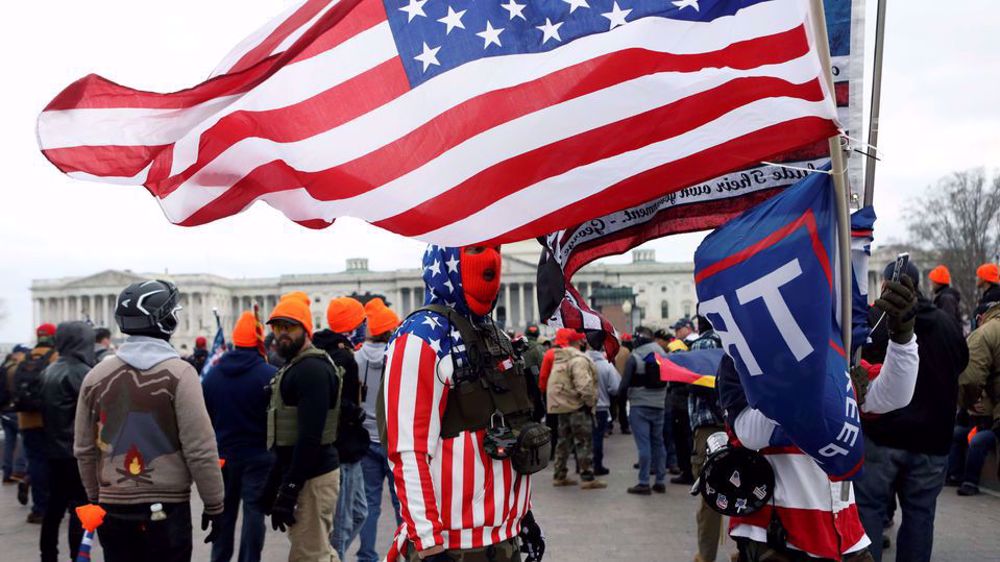
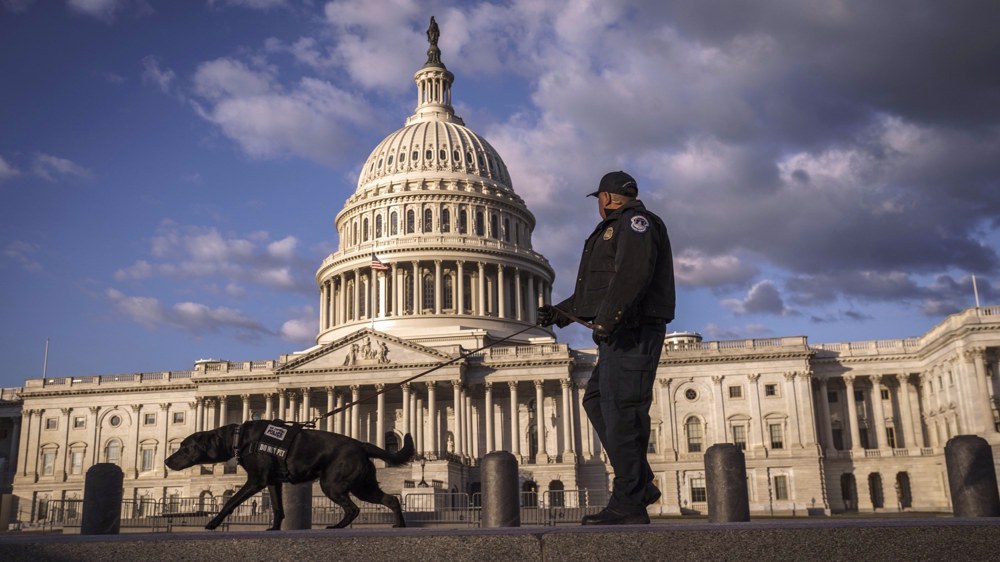
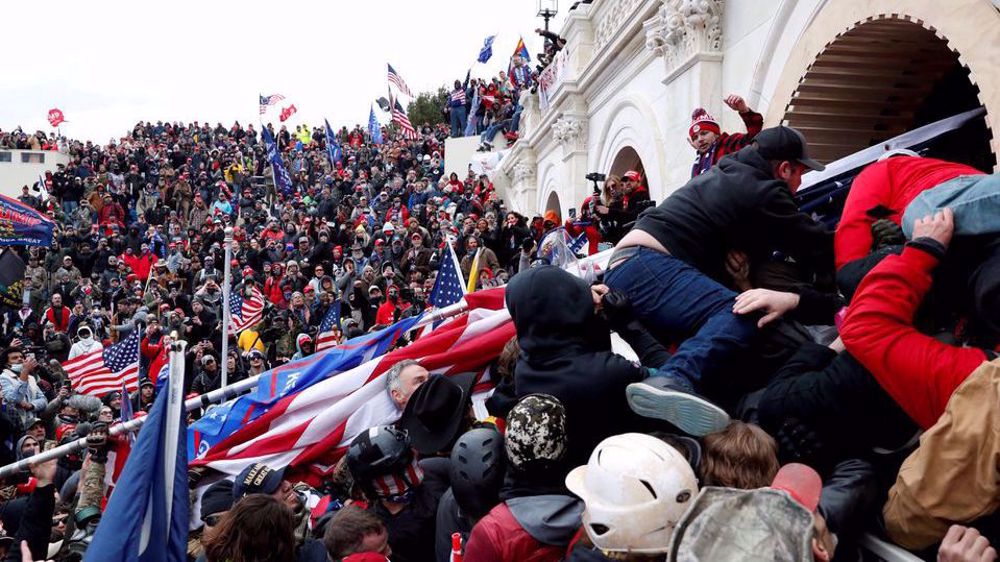
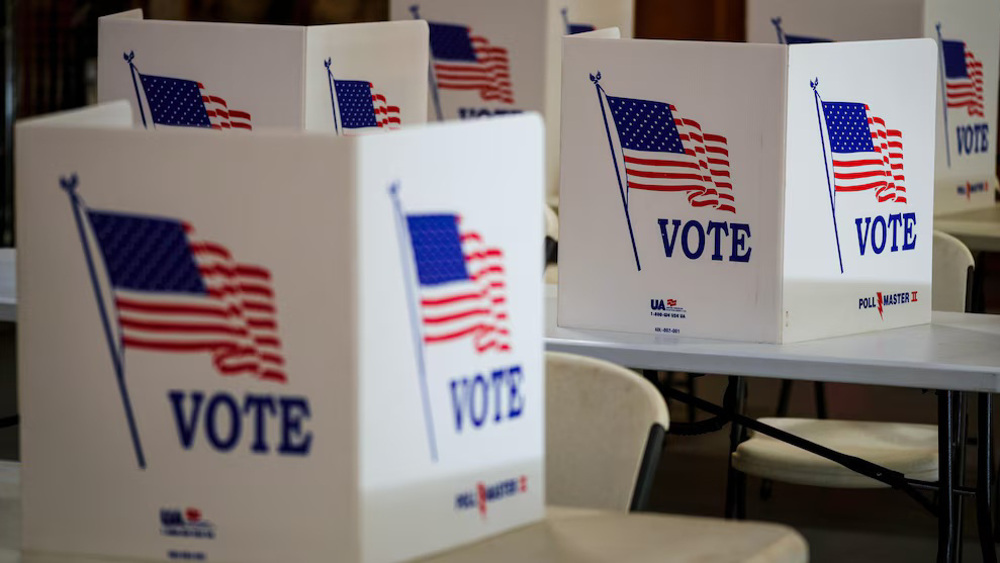

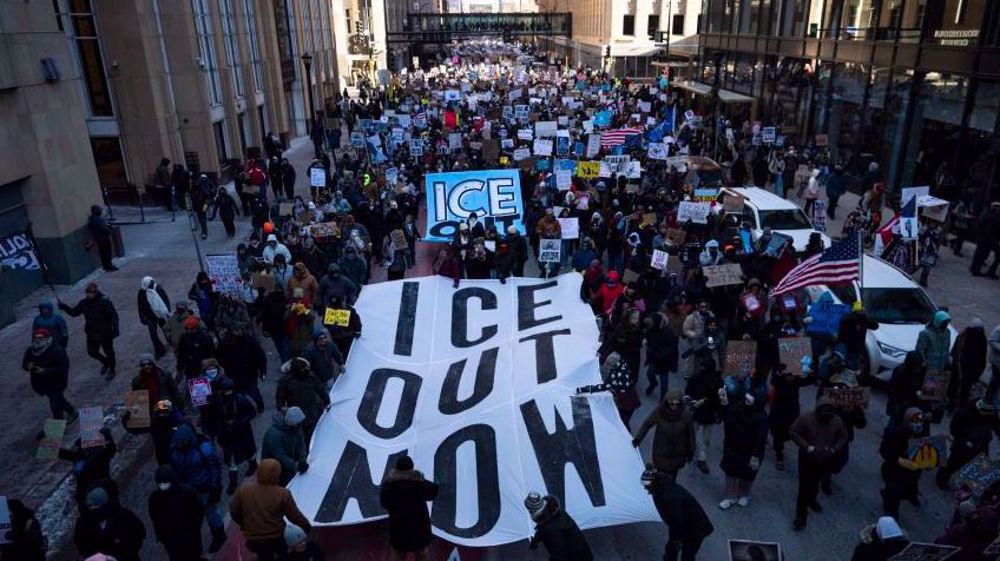



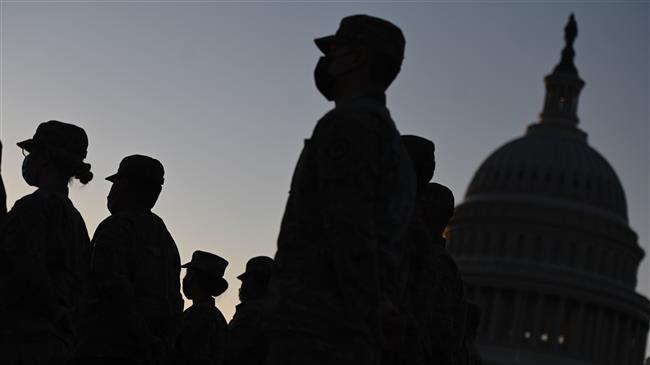


 This makes it easy to access the Press TV website
This makes it easy to access the Press TV website